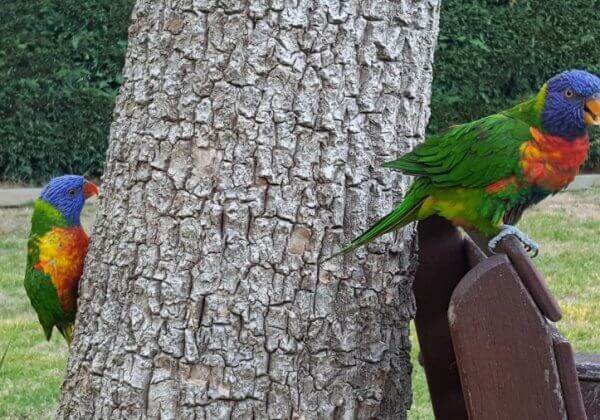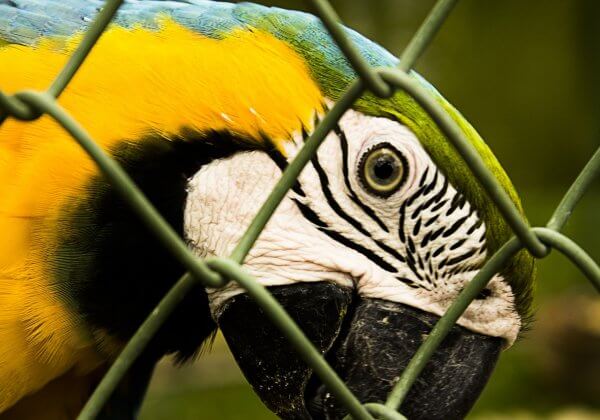Don’t Chain Your Best Friend
 © PETA US
© PETA US© PETA US
It shouldn’t happen to “man’s best friend”, but it does. Take a drive down many country roads and city streets, and you’ll see them – dogs left to spend their entire lives in “solitary confinement”, trapped at the end of a chain or a rope or in a small pen.
We can’t think of a crueller punishment for these social pack animals who want and deserve companionship, scratches behind the ears, walks around the block and the opportunity to curl up at their guardians’ feet at night indoors.
Kept “out of sight, out of mind” in the backyard, chained dogs are often deprived of adequate food, water and veterinary care, in addition to having their emotional and social needs completely ignored. Many are denied proper shelter and have nothing but an overturned trash bin or plastic barrel – or nothing at all – to shield them on freezing winter nights. Countless chained dogs have died of heatstroke on sweltering summer days.
Chained dogs are also totally vulnerable to other animals and cruel people, and many chained dogs have been stolen, set on fire, shot, stabbed, tortured or poisoned by cruel passersby or neighbours who were annoyed by their barking.
Given these cruel living conditions, it’s no surprise that chained dogs often become aggressive and attack children or other people who approach them. Chained dogs are more likely to bite because they are usually unsocialised; their living space is reduced to a few square metres, which heightens their territoriality; and they don’t have the option of escaping during a confrontation. Not only is chaining dogs an animal welfare issue, it’s also a public safety hazard.
The most effective way to help hundreds or thousands of neglected dogs in your area – as well as prevent dog attacks – is to work with lawmakers to ban chaining. You may be a dog’s only hope for a better life.
Companion Animals:
Overpopulation Crisis | Desexing FAQs | Breeders Kill Shelter Animals







